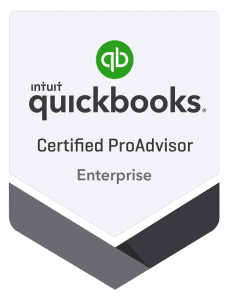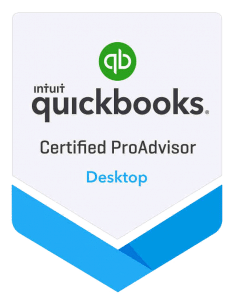Running a business means dealing with a lot of moving parts. From managing payroll to tracking expenses and filing taxes, it’s easy to feel overwhelmed. One thing you can’t afford to overlook is your bookkeeping system. When this system falls short, it can affect how you make decisions, plan for growth, and stay compliant.
Many business owners rely on outdated or disorganized methods without realizing the consequences. Maybe you’re constantly fixing errors or struggling to get a clear picture of your cash flow. If that sounds familiar, it might be time to take a closer look at how your bookkeeping is working or not working for you.
Signs Of Inaccurate Financial Records
Mistakes in your financial records don’t just cause frustration. They can lead to bigger problems. If your income statement doesn’t match your bank account, or if your balance sheet never seems quite right, chances are there are mistakes slipping through the cracks.
When numbers don’t reflect what’s really going on in your business, it becomes harder to make solid financial decisions. You might overspend without realizing it or miss out on key opportunities because the data you’re relying on just isn’t accurate.
Here are a few signs that your records might not be adding up correctly:
– Vendor statements don’t match your books
– Reconciliations are skipped or rushed
– You’re adjusting entries constantly to fix issues
– Your accountant keeps asking for clarification around basic transactions
One example of this is a business owner who realized too late that expenses were being categorized the wrong way. This led to underreporting profits for months and caused big headaches when it came time to file taxes.
Catching these kinds of issues requires a process that includes regular reviews, double-checking entries against source documents, and making sure you’re coding every transaction properly. If errors pop up often, that’s a red flag your system needs serious attention.
Delayed Financial Reporting
Another sign that your bookkeeping system isn’t doing its job is when financial reports are always late. If you’re scrambling to pull reports before a big meeting or find yourself constantly asking your bookkeeper for yet another update, something’s off.
Delayed reporting slows down your ability to make informed moves. Without up-to-date numbers, you’re operating on guesswork, which makes planning tough. Cash flow surprises become more common, and you risk missing payment deadlines or tax filings.
Let’s look at a few reasons your system may be falling behind:
- You’re entering transactions manually and can’t keep up
- Your software isn’t synced with your bank or payroll tools
- There’s no regular reporting schedule in place
- Staff doesn’t have clear roles or enough training
Fixing this usually means improving the workflows behind your bookkeeping. Use software that updates automatically, schedule reporting at consistent intervals, and make sure whoever is handling the books knows exactly what to do and when to do it. Timely reporting gives you confidence because you’ll know where you stand, day in and day out.
Overwhelming Paperwork and Disorganization
A messy desk is one thing, but when your bookkeeping system is a jumble, it can really mess with your workday. Clutter in your bookkeeping setup can make retrieving important documents a chore and reduce overall productivity. You might spend more time looking for documents than managing them, which often leads to frustration.
To know if chaos is reigning over your bookkeeping, look for these signs:
– Transactions are recorded in multiple places
– Invoices are scattered across various folders
– Receipts are not grouped or categorized
– Difficulty in finding past records quickly
Imagine a small shop owner who couldn’t find essential tax documents when needed, leading to penalties. This sort of chaos often comes from not having a clear system in place. Fixing it involves setting up a proper filing system. Categorize documents logically, use digital storage solutions to cut down on paper, and make sure there’s a simple way to track all financial records.
An organized system doesn’t just clear up physical space. It provides mental clarity too. It allows you to operate smoothly and focus on other areas that need your attention, knowing your bookkeeping is neat and accessible.
Difficulty in Tracking Cash Flow
Cash flow is the lifeline of any business, so tracking it needs to be accurate. Failing to do so can lead to overspending without realizing where your money’s headed. This makes it harder to cover expenses and plan for slower months.
If you’re having trouble staying on top of your cash flow, consider these issues:
- You’re not using a clear cash flow statement
- There’s no established budget or spending boundaries
- Payments and receivables aren’t tracked consistently
- Unexpected costs regularly throw your finances off balance
Let’s take the example of a cafe owner who struggled because he couldn’t track inventory expenses and sales properly. This error put a strain on cash reserves and nearly impacted payroll during a slow period. The solution often comes down to building a solid budgeting method, reviewing it often, and staying involved in both income and spending. A good cash flow statement helps highlight trends and keeps you prepared instead of reactive.
Moving Forward with Better Bookkeeping
Identifying these warning signs is the first step to getting your bookkeeping back on track. Regular check-ins with your system help you stay on course and fix issues before they build up. Improving your tools, automating where you can, and organizing your workflows can make a big difference in how you manage finances.
Making these changes means fewer mistakes, less stress, and better visibility. You’ll have the confidence to make decisions that support long-term goals instead of just reacting to what’s happening today.
FAQs
What are the common mistakes to avoid in bookkeeping?
Common mistakes include not reconciling accounts, mixing personal and business expenses, and failing to back up data regularly.
How often should a small business review its bookkeeping system?
It’s a smart move to check your bookkeeping once a month. This helps catch errors early and keeps everything running smoothly.
What are the benefits of outsourcing bookkeeping services?
Outsourcing gives you access to pros who know what they’re doing. It also saves time and can help avoid costly mistakes.
How can Cloud Bookkeeping help my business improve its bookkeeping system?
We offer personalized support, accurate recordkeeping, and ongoing help to keep your books organized and up-to-date.
What should I look for in a professional bookkeeping service?
Find a service with industry experience, clear communication, fair pricing, and strong references. They should understand your business goals.
Implementing an efficient bookkeeping system can make a big difference for your business. If you’re ready to streamline your financial operations and ease your daily workload, consider exploring how professional bookkeeping services can help. Cloud Bookkeeping offers the expertise and support needed to ensure your financial records are accurate and up-to-date, leaving you with more time to focus on growing your business.






